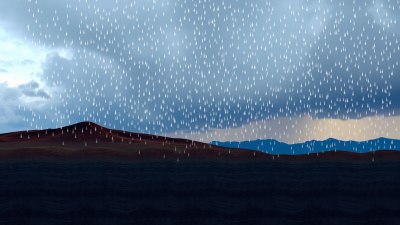What If Earth Had No Wind How Life Would Be Completely Different
Explore a world without wind and its dramatic effects on life, climate, and ecosystems.

Image by fanjianhua on Freepik
Imagine a world where the wind doesn't blow, where the gentle whispers of nature are replaced with an eerie silence. The absence of wind would dramatically alter the landscape of our planet and the very foundation of life as we know it.
The Role of Wind in Climate
Wind plays a vital role in regulating the Earth's climate. It helps to distribute heat around the planet, contributing to the formation of weather patterns and the movement of air masses. Without wind, regions that depend on seasonal winds would experience drastic temperature changes. For example, tropical areas might become unbearably hot, while polar regions could plunge into extreme cold. The delicate balance of ecosystems would be disrupted, leading to catastrophic consequences for biodiversity.
The Impact on Weather Patterns
With no wind to drive them, weather patterns would be profoundly affected. Storm systems, which rely on wind currents to develop and move, would become stagnant. This stagnation could lead to prolonged droughts in areas that typically rely on precipitation from moving weather systems. Conversely, regions would be at risk of experiencing floods when moisture-laden air stagnates, resulting in unprecedented weather conditions and damaging effects on the environment.
Ecosystems and Biodiversity
The absence of wind would lead to a decline in biodiversity. Many plants and animals rely on wind for dispersal. For instance, trees such as pines and oaks rely on wind to carry their seeds to new locations, allowing their populations to expand. Without this capability, we could see a decline in forests and a shift in ecosystems. Grasses and other wind-pollinated plants would struggle to reproduce, leading to further declines in plant diversity and the animals that depend on them for food. Insects that have adapted to use wind for navigation would find it challenging to survive, impacting the entire food web.
Effects on Agriculture
Agriculture would face significant challenges in a no-wind scenario. Wind helps to pollinate many crops, including those that are staple food sources like corn and wheat. Without wind, we could see a reduction in crop yields, leading to food shortages and economic instability. Farmers might need to rely more heavily on artificial pollination methods, which could increase costs and reduce crop diversity. Furthermore, the lack of wind would likely increase the prevalence of pests and diseases, as stagnant air may promote conditions favorable for outbreaks.
Human Societies and Infrastructure
Human societies would also be drastically affected by the absence of wind. On a practical level, wind energy generation would be non-existent, leading to a greater reliance on fossil fuels and other energy sources, exacerbating climate change. Urban design would shift as cities would need to account for stagnant air and temperature differences, leading to poorly ventilated and unhealthy living conditions. The lack of natural air flow could lead to increased pollution levels, creating public health challenges that might be impossible to overcome.
Psychological Effects
Wind is not just a physical phenomenon; it also has psychological implications. The soothing sounds of rustling leaves and the gentle breeze can improve mental well-being. Without these natural cues, humans may experience increased levels of stress and anxiety, losing a significant connection to nature. People often hike, stroll, or sit outdoors to enjoy the breezes of nature. In a windless world, outdoor activities may be less appealing, leading to a sedentary lifestyle and associated health issues.
Increased Temperature Extremes
Wind acts as a cooling mechanism for the planet. In the absence of wind, heat generated from sunlight would accumulate, potentially leading to much hotter conditions across the globe. This could intensify heat waves, leading to increased energy demands for cooling systems and strain on electrical grids. Many areas that currently enjoy moderate climates would become inhospitable, forcing migrations and causing social strife.
Changing Ocean Dynamics
Wind also plays a crucial role in shaping ocean currents. These currents are fundamental for supporting marine ecosystems, influencing nutrient distribution, and regulating climate. Without wind, ocean currents would weaken, causing a collapse of the marine food web. Nutrient cycling would be disrupted, potentially leading to large-scale die-offs of marine species. Coral reefs, highly sensitive to changes in temperature and nutrient levels, could face existential threats, leading to the loss of biodiversity in the oceans.
The world without wind would be unrecognizable, fraught with challenges that ripple through every aspect of life on Earth. From the oceans to the forests, cities to the countryside, the absence of wind would fundamentally change our climate, ecosystems, and even our mental health. While theoretical, this scenario serves as a reminder of the interconnectedness of natural systems and the importance of wind in maintaining the delicate balance of life on our planet.











